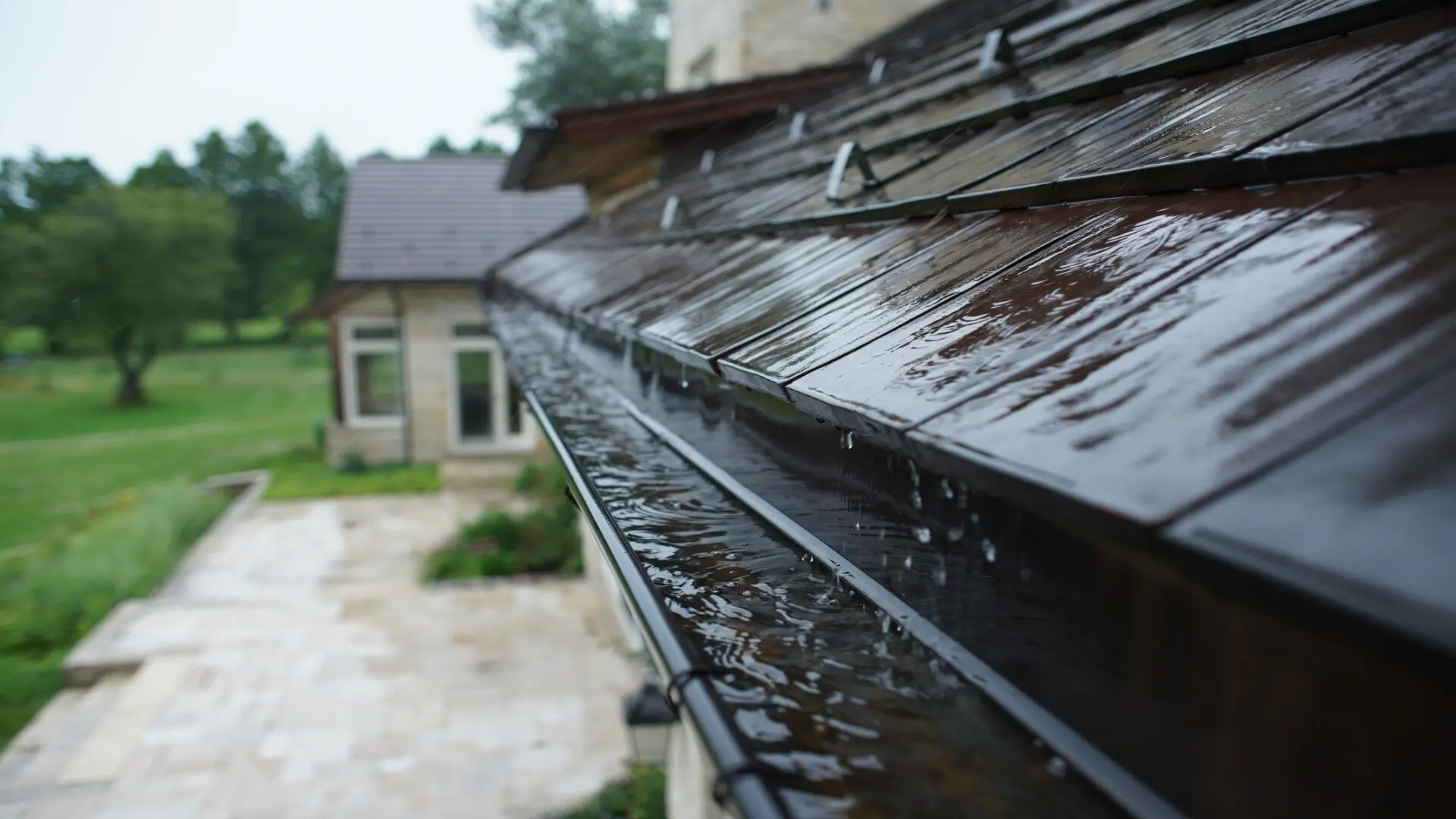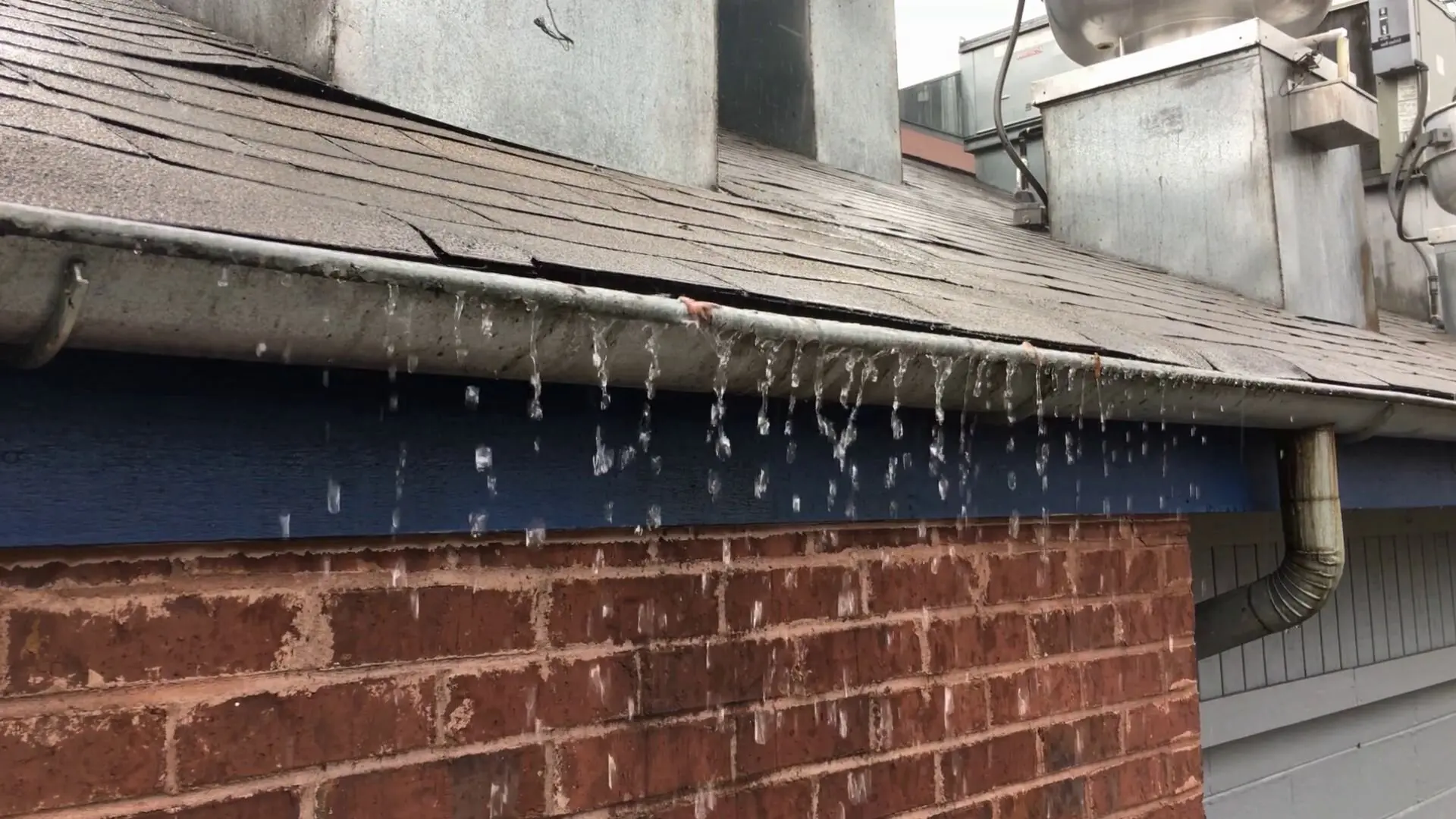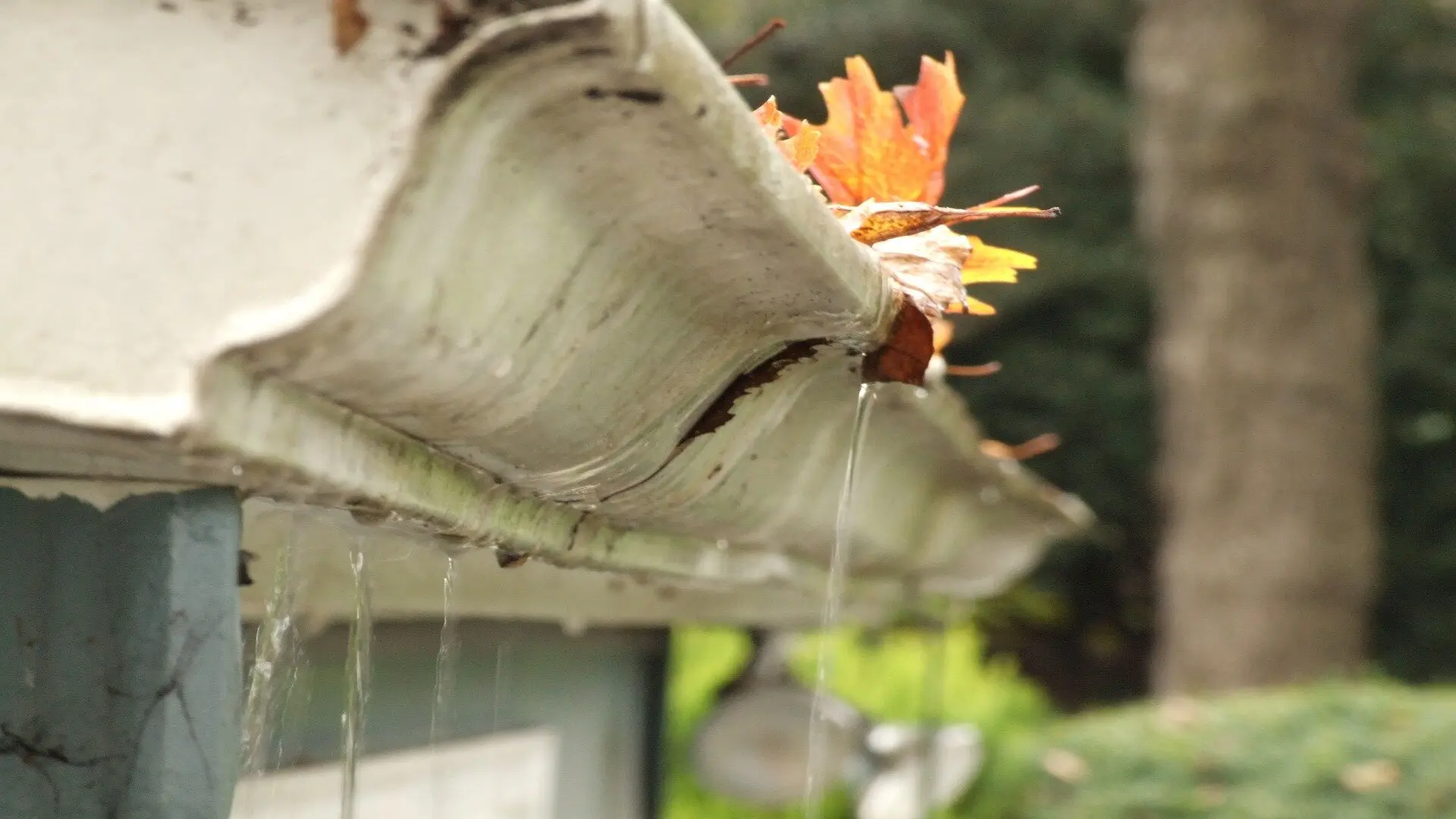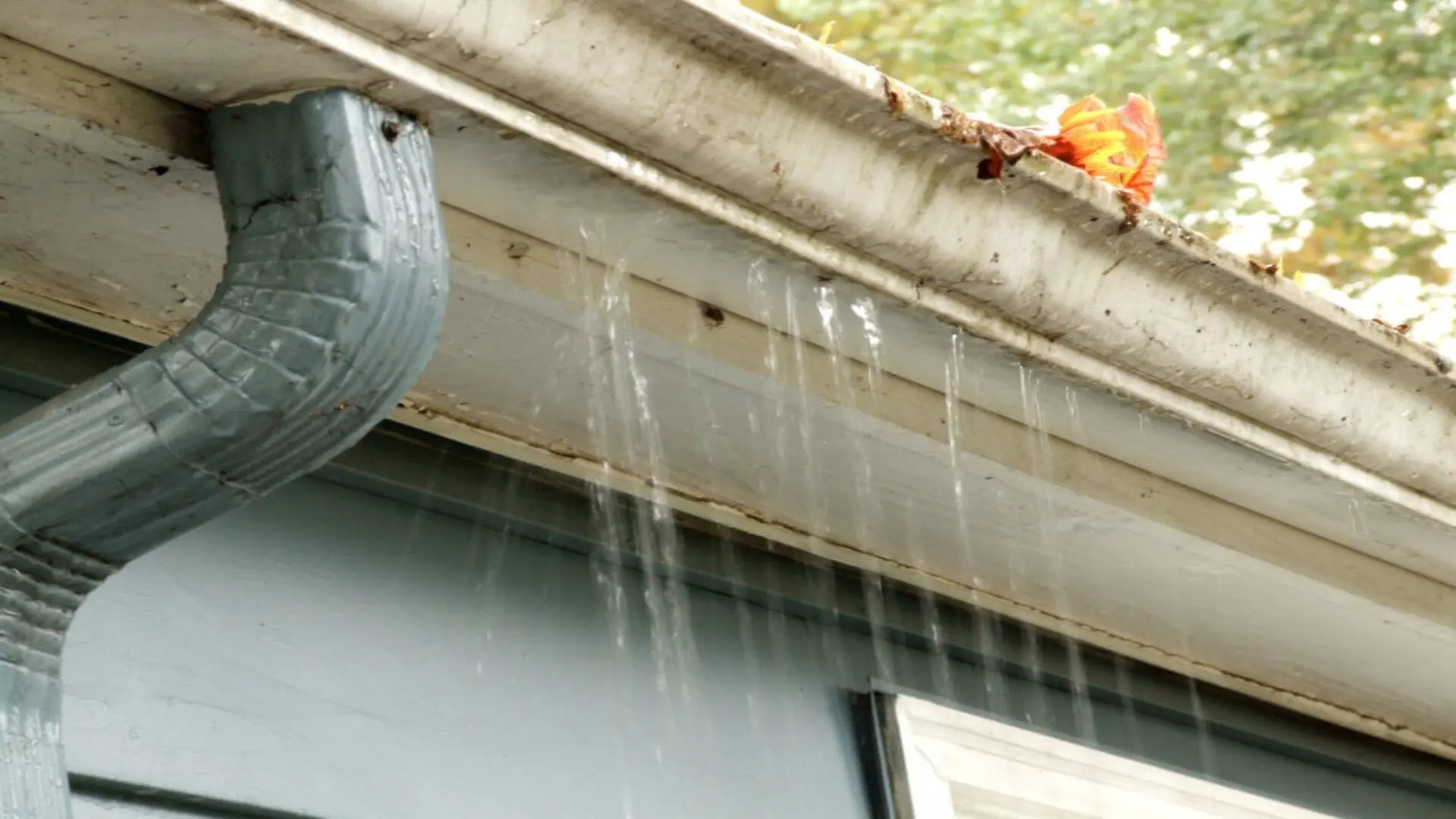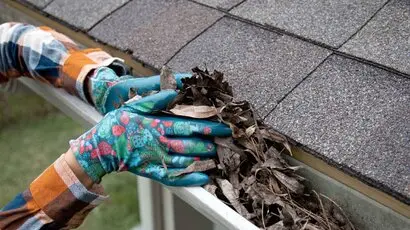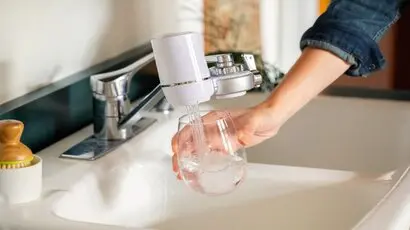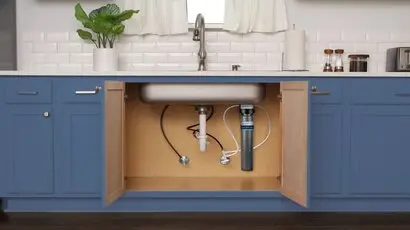![]()
Every homeowner understands that keeping a home in good shape involves more than just looks. Take gutters, for instance. Although often overlooked, they play a crucial role in redirecting rainwater away from your house, safeguarding the roof, walls, foundation, and landscape from possible water damage.
This vital system works best when it’s in tip-top shape. But what if they overflow during heavy rain, spilling water everywhere and failing to do their job? Overflowing gutters can point to a range of issues, from minor to significant. This article will help you grasp why gutters overflow, the damage they might cause, and ways to prevent it, keeping your home secure and dry.
Why Gutters Overflow
Gutters overflow for several reasons, but most issues can be avoided with regular upkeep and a bit of vigilance.
Firstly, clogging is the most common cause of overflowing gutters. Over time, your gutters can accumulate various forms of debris, such as leaves, twigs, and bird nests. This accumulation leads to blockages that hinder the free flow of water, causing the gutters to overflow.
Secondly, the importance of adequately installed gutters must be balanced. For water to flow efficiently towards the downpipes, gutters must be installed with the correct slope. Incorrectly pitched gutters can cause water to pool and, eventually, overflow.
Another issue that can lead to overflowing is insufficient capacity or incorrect sizing of the gutters. If your gutters are too small to handle the volume of water coming off your roof, especially during heavy rains, they are likely to overflow. The size of the gutter necessary for efficient drainage largely depends on the roof’s size, pitch, and the maximum rainfall intensity in your area.
Finally, a lack of regular maintenance can also result in overflowing gutters. Regular cleaning and maintenance of gutters can prevent a multitude of issues. If not cleaned regularly, debris can build up, leading to blockages and overflowing. Preventative maintenance can mitigate these issues, ensuring your gutters function properly.
The Consequences of Overflowing Gutters
While overflowing gutters may initially seem minor, their consequences can escalate into significant problems if they are not promptly addressed.
One such problem is water damage to your home. When gutters overflow, water spills onto the walls of your house. This water can seep into the interior, leading to extensive water damage. In addition, this dampness can create a conducive environment for mould growth, further deteriorating your home’s structure and posing significant health risks to the inhabitants.
![]()
Overflowing gutters don’t just affect walls and interiors; they can seriously damage your home’s foundation too. Water spilling over the sides gathers around the foundation, gradually eroding the soil that supports it. This erosion can cause cracks and weaken the structure, leading to major instability and expensive repairs.
Finally, the increased dampness caused by overflowing gutters can contribute to mould growth. Mould thrives in damp conditions, and an overflow from the gutters can create the perfect environment for it to flourish. This mould growth is not just an aesthetic issue; it poses a severe health risk, as exposure to mould can lead to respiratory problems and other health complications.
How to Prevent Overflowing Gutters
Regular Cleaning
Regular cleaning is one of the most effective ways to prevent gutter overflow. This step becomes especially critical during seasons like fall and spring when leaf fall is at its peak. By removing all leaves, twigs, and other debris, you can ensure that water flows freely through your gutters, reducing the likelihood of blockages and overflows. Regular cleaning not only prevents overflow but also extends the lifespan of your gutters, saving you money in the long run.
Proper Installation
Correct installation of gutters plays a crucial role in their effectiveness. They should be installed with the right pitch to direct water efficiently towards the downspouts. If you need more clarification on the installation, consider hiring a professional. They can assess your current gutter system and make any necessary adjustments. This step can help prevent future issues with water pooling and overflowing.
![]()
Upgrade to Larger Gutters
If your gutters struggle to handle the volume of water coming off your roof, particularly during heavy rains, consider upgrading to more oversized gutters. The size of your gutters should be proportional to your roof’s size and the maximum rainfall intensity in your area. Upgrading to larger gutters can significantly reduce the risk of overflow, protecting your home from potential water damage.
Install Gutter Guards
Another effective preventive measure is the installation of gutter guards. These devices prevent leaves and other debris from entering your gutters, reducing the risk of clogs and overflows. Gutter guards can be particularly beneficial if your home is surrounded by trees, with a high risk of gutter blockage. Investing in gutter guards can significantly reduce the time and effort required for gutter cleaning, providing a long-term solution to prevent overflowing.
When to Call a Professional
Regular maintenance, including cleaning and checks, can prevent many gutter issues. However, some situations require a professional’s touch. Spotting these early can save your home from severe damage and avoid expensive repairs later.
If your gutters are consistently overflowing despite regular cleaning and maintenance, this could indicate a more complex problem. It could be a sign of incorrect installation, such as improper slope or inadequate sizing of the gutters. A professional can conduct a thorough assessment, identify the root cause of the persistent overflow, and undertake the necessary repairs or replacements.
![]()
Signs of water damage or leaks in your home, like damp patches on walls, peeling paint, or mould growth, should also prompt you to call a professional. These signs suggest that water is not effectively directed away from your home, possibly due to gutter overflow or other issues with your home’s drainage system. In such cases, a professional can determine the problem’s severity, locate the leak’s source, and propose practical solutions.
If you’re uncertain about your gutters’ condition—maybe they’re old or visibly damaged—it’s wise to call in a professional. They can assess their state, recommend repair or replacement, and ensure they’re working perfectly.
Remember, gutters are critical to your home’s defence against water damage. While regular maintenance can resolve minor issues, don’t hesitate to seek professional help when necessary. Timely professional intervention can prevent minor issues from escalating into more severe problems, ensuring the longevity of your home.
Keep Your Gutters Clean And Flowing!
Maintaining clean, well-functioning gutters protects your home from water damage and other potential issues. By understanding why gutters overflow and taking the necessary steps to prevent it, you can ensure that your gutters continue to do their job effectively.
However, it’s best to call the professionals if you’re experiencing persistent issues with overflowing gutters or suspect they may not have been installed correctly. We offer expert gutter cleaning and maintenance services at WP Plumbing in Melbourne to keep your gutters in top shape and protect your home from potential water damage. Refrain from overflowing gutters, getting the best of your home. Contact us today to schedule a gutter inspection and service.

